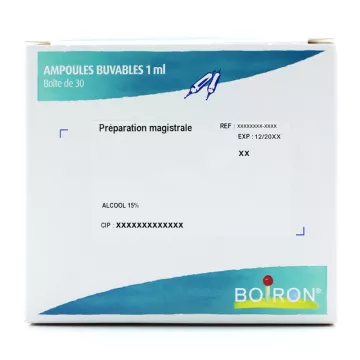
What is parasitosis?
Parasitosis is a condition caused by parasites that infest the body of a host, whether human or animal. These parasites can be protozoa, helminths (worms) or ectoparasites such as ticks and fleas. Depending on the type of parasite, infection can affect various organs or tissues, and often manifests itself through symptoms such as abdominal pain, fever, fatigue and digestive disorders.
How are parasites transmitted?
The modes of transmission of parasitosis can vary widely depending on the type of parasite. The most common routes include consumption of contaminated food or water, direct contact with infected animals, transmission through insect bites or contact with contaminated soil. Hygienic practices and preventive measures are crucial to reduce the risk of transmission.
What are the symptoms of parasitosis?
Symptoms of parasitosis depend on the type of parasite involved and the part of the body affected. Common signs include gastrointestinal upset, fatigue, weight loss, skin rashes, and in some cases, more serious symptoms such as fever or neurological problems. It's important to consult a doctor if you suspect a parasitosis, for an accurate diagnosis and appropriate treatment.
How is a parasitosis diagnosed?
Parasites are often diagnosed by laboratory tests, including blood tests, stool tests and sometimes medical imaging to detect the presence of parasites. The type of examination depends on the suspected parasitosis, and may require several samples to confirm the diagnosis.
What are the treatment options for parasitosis?
Treatment for parasitosis varies according to the type of parasite and the severity of the infection. It may include antiparasitics, antibiotics (for secondary infections), and supportive treatments such as rehydration and nutrition. Following medical instructions and completing the prescribed treatment is essential to eradicating parasites.
How can parasitosis be prevented?
Preventing parasitosis involves several key measures: maintaining good personal hygiene, avoiding consumption ofpotentially contaminated food and water, using insect repellents, and wearing protective clothing in high-risk areas. Awareness-raising and education about the risks associated with parasites are also crucial in reducing cases of parasitosis.
Which populations are particularly at risk of parasitosis?
Populations at risk of parasitosis include children, the elderly, immunocompromised individuals, and travelers visiting regions where certain parasitoses are endemic. People living in or traveling to tropical and subtropical climates are also more likely to encounter parasites due to conditions favorable to their development and transmission.
What's the difference between acute and chronic parasitosis?
Acute parasitosis is characterized by the sudden and often severe onset of symptoms shortly after infection. On the other hand, a chronic parasitosis may develop slowly and remain asymptomatic for a long period before causing symptoms, making diagnosis and treatment more complex.
Is it possible to develop immunity to parasites?
In some cases, exposure to parasites can lead to some form ofimmunity, reducing the risk of re-infection or alleviating symptoms on future exposures. However, this immunity may be specific to one type of parasite, and does not guarantee protection against other forms of parasitosis.
What role does nutrition play in the management of parasitosis?
Nutrition plays a crucial role in the management and recovery from parasitosis. A balanced diet boosts the immune system, helping the body to fight infection. In addition, specific nutrients may be required to compensate for deficiencies caused by parasites, which may consume host nutrients or disrupt normal absorption.
Are there any recent advances in the treatment of parasitosis?
Recent advances in the treatment of parasitosis include the development of new, more effective and less toxic antiparasitic drugs, as well as targeted treatment strategies based on parasite genetics. Research also continues to intensify into vaccines and innovative prevention methods to control the spread of parasitic infections.